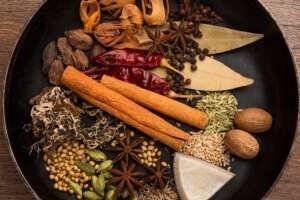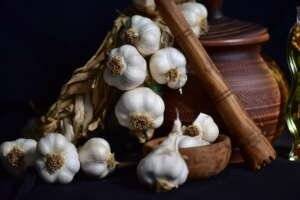Recovering from surgery can be challenging, but certain spices and herbs can help reduce post-surgical inflammation naturally. These powerful ingredients, often staples in the kitchen, are packed with compounds that aid healing, reduce inflammation, and support overall recovery.

Turmeric: The Golden Healer
Turmeric, renowned for its medicinal properties, contains curcumin, a compound with strong anti-inflammatory effects. Research published in Frontiers in Pharmacology (2020) highlights curcumin’s ability to reduce post-surgical inflammation and promote wound healing.
How to Use Turmeric
- Add it to soups, teas, or smoothies.
- Combine it with black pepper to boost absorption by up to 2,000%, thanks to piperine.
Ginger: A Potent Anti-Inflammatory Agent
Ginger contains compounds like gingerol and shogaol, which reduce inflammation and boost immunity. Studies, including one from Food & Function (2019), indicate that ginger lowers markers of inflammation, such as CRP, enhancing recovery.
How to Use Ginger
- Brew fresh ginger tea to sip during the day.
- Incorporate grated ginger into stir-fries or salad dressings.
Garlic: Nature’s Immune Booster

Rich in allicin, garlic possesses anti-inflammatory and antimicrobial properties. It modulates cytokine production, reducing inflammation, as reported in a 2018 Mediators of Inflammation study on post-surgical recovery.
How to Use Garlic
- Add minced garlic to soups, stews, or marinades.
- Try aged garlic supplements if you’re sensitive to its flavour.
Cinnamon: An Anti-Inflammatory Sweetener
Cinnamon’s cinnamaldehyde suppresses inflammation and regulates blood sugar, aiding smooth recovery. A Journal of Ethnopharmacology (2021) study found cinnamon reduces oxidative stress and supports healing.

How to Use Cinnamon
- Sprinkle it on oatmeal, yogurt, or smoothies.
- Use cinnamon sticks to infuse flavour into teas.
Holy Basil (Tulsi): The Queen of Herbs
Holy basil is known for its anti-inflammatory and stress-reducing properties. A study in the Journal of Ayurveda and Integrative Medicine (2017) found that it accelerates wound healing and reduces inflammation.
How to Use Holy Basil:
- Brew holy basil tea for a soothing drink.
- Add dried leaves to soups or stews.
Tips for Incorporating Healing Spices and Herbs
- Start Gradually: Introduce one spice or herb at a time to monitor its effects.
- Opt for Fresh or Quality Dried Options: High-quality forms retain more active compounds.
- Consult Your Doctor: Certain spices may interact with medications like blood thinners.
Final Thoughts
By integrating these natural anti-inflammatory spices and herbs into your post-surgical recovery plan, you can complement medical treatments and speed up healing. Turmeric, ginger, garlic, cinnamon, and holy basil not only help reduce inflammation but also enhance immunity and overall wellness. Combined with a balanced diet and proper medical care, these natural remedies can support a faster, healthier recovery.
References
- Kumari, A., et al. (2022). Wound-Healing Effects of Curcumin. Pharmaceutics.
- Ballester, P., et al. (2022). Effect of Ginger on Inflammatory Diseases. Molecules.
- Arreola, R., et al. (2015). Immunomodulation by Garlic. Journal of Immunology Research.
- Pagliari, S., et al. (2023). Antioxidant Effect of Cinnamon. Foods.
- Jamshidi, N. et al. (2017). Tulsi’s Clinical Efficacy. Evid Based Complement Alternat Med.


